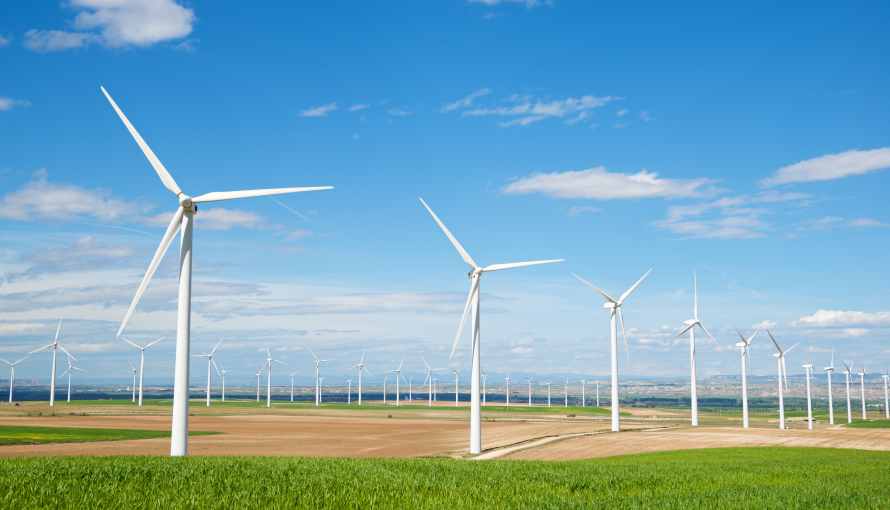PepsiCo’s ambitious climate target: PepsiCo doubles down on climate goal and pledges net-zero emissions by 2040

Almost a year ago today, we wrote about PepsiCo after the food and beverage leader announced its plans to achieve 100% renewable energy use for all of its direct operations in the U.S. last year. Fast forward a year later, PepsiCo is doubling down on its climate goal and pledges net-zero emissions by 2040 in its most ambitious climate target yet.
In a news release this morning, PepsiCo plans to more than double its existing science-based climate goal, reducing absolute greenhouse gas (GHG) emissions across the entire value chain by more than 40% by 2030. In addition, the company has pledged to achieve net-zero emissions by 2040, one decade earlier than called for in the Paris Agreement.
Specifically, PepsiCo plans to reduce absolute GHG emissions across its direct operations (Scope 1 and 2) by 75% and its indirect value chain (Scope 3) by 40% by 2030 (2015 baseline). This action is expected to result in the reduction of more than 26 million metric tons of GHG emissions or the equivalent of taking more than five million cars off the road for a full year.
“The severe impacts from climate change are worsening, and we must accelerate the urgent systemic changes needed to address it,” said PepsiCo Chairman and CEO Ramon Laguarta. “Climate action is core to our business as a global food and beverage leader and propels our PepsiCo Positive journey to deliver positive outcomes for the planet and people. Our ambitious climate goal will guide us on the steep but critical path forward — there is simply no other option but immediate and aggressive action.”
PepsiCo’s sustainability strategy, informed by leading science-based measures and cost-benefit analysis, focuses on the areas where it can have the most impact while creating scalable models and partnerships for accelerated progress across the full value chain. The company’s emissions target aligns to the Business Ambition for 1.5°C pledge and has been approved by the Science Based Targets initiative as the most ambitious designation available through their process.
“We congratulate PepsiCo on setting an emissions reduction target consistent with limiting warming to 1.5°C, the most ambitious goal of the Paris Agreement,” said Nate Aden, Senior Associate at World Resources Institute, one of the Science-Based Targets initiative partners. “Companies have a vital role to play in driving down global emissions, and it is encouraging to see major players, such as PepsiCo, taking ambitious action.”
PepsiCo’s action plan is centered around mitigation, reducing GHG emissions to decarbonize its operations and supply chain, and resilience, reducing vulnerabilities to the impacts of climate change by continuing to incorporate climate risk into business continuity plans. With operations in more than 200 countries and territories around the world and approximately 260,000 employees, the company’s emissions reduction plan will be comprehensive across priority areas such as agriculture, packaging, distribution, and operations.
Below are the major highlights:
- PepsiCo plans to reduce absolute GHG emissions across its direct operations (Scope 1 and 2) by 75% and its indirect value chain (Scope 3) by 40% by 2030. This action is expected to result in the reduction of more than 26 million metric tons of GHG emissions, or the equivalent of taking more than five million cars off the road for a full year.
- This goal builds on PepsiCo’s commitment to science-based climate action. In 2020, the company met its target to achieve 100% renewable electricity in the U.S., while setting a new target to source 100% renewable electricity globally.
- This year, PepsiCo expects to achieve 100% renewable electricity in Mexico and Australia, which will bring the total number of countries fully sourcing renewable energy in PepsiCo’s direct operations to 15 and addresses approximately 60% of our direct global electricity needs through renewable sources.
- PepsiCo continues to support the growth of new renewable energy generation capacity through power purchase agreements. The company has finalized agreements with renewable energy company Ørsted for two new wind projects in Texas and Nebraska that will address nearly a quarter of PepsiCo’s total U.S. electricity needs.
“Our climate ambition is at the very heart of accelerating our global sustainability progress, and we are using our scale and reach to build a more sustainable and regenerative global food system,” said Jim Andrew, Chief Sustainability Officer, PepsiCo. “It’s long overdue that companies move beyond just minimizing their environmental impact, they must actively work to improve and regenerate the planet.”




